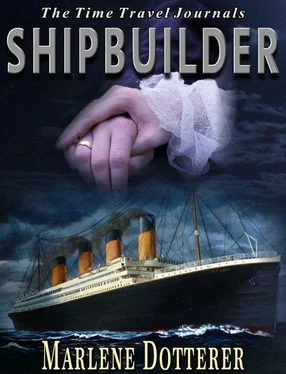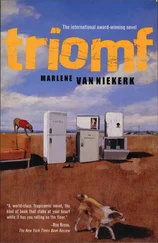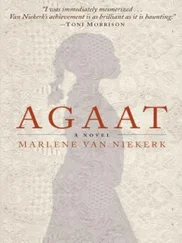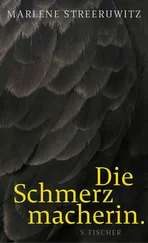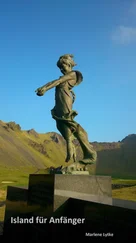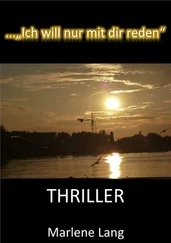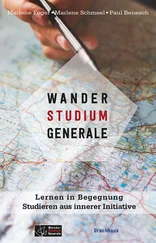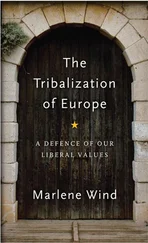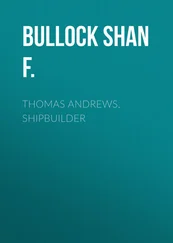“Now, I don’t know if that’s a good thing or bad thing, but I’ve been thinking about it. We have no idea what will change because of our presence. Even if we don’t decide to change something deliberately, I think it’s impossible that we won’t have some effect, somewhere. And I want to know what happens. I want to keep studying this and hopefully, in this timeline, we can make some real progress in the knowledge of time travel.”
“How?”
“I wonder if we should somehow leave messages for the future. A trail of sorts, to show what we did. You’ve seen the notebook I had in my pocket when we came here. You know I’ve been keeping a diary of sorts. But maybe we should each keep one and record what we remember of our twentieth century. Leave a way for future historians to determine the effect we’ve had. And not just historians. For me, too.”
“You?”
“Well…” he paused, not sure if she would approve of his idea. “For my future self. Assuming I’m born in 1946 and go into physics, having access to all this would be helpful. It’s an idea I’ve been thinking about. It hasn’t quite come together yet, so I’m not sure I can explain it.”
“Okay,” Casey said. “Let me know when you figure it out. But sure, I can keep a diary, too. We need to record what we remember of the future, too. We have to, Sam. We owe it to our families and friends, if no one else.”
Sam nodded. “We can call them time travel journals. We’ll have to buy notebooks.” He lifted a brow at Casey. “Something else to spend money on.”
“I have some blank paper in my backpack,” Casey said. “We can start with that.”
~~~
A few days later, a letter came from Einstein, and Casey listened as Sam read it aloud, hope hammering her chest. But the hope faded at the carefully worded letter. Einstein expressed amazement at Sam’s thoughts, but left enough unsaid to keep from committing himself. He seemed to think Sam might be insane, but wanted to keep his options open. He asked for more time to think about it. He encouraged Sam to continue writing to him and said he hoped they could meet at some future time to discuss Sam’s ideas.
Casey bit her lip as Sam folded the letter, his face discouraged and bitter. “I can’t depend on Einstein,” he said, staring at the pages in his hand. “We revered these early physicists. I can’t believe they would all be so afraid.”
“Write him again,” Casey said, trying to sound upbeat. “He’s our best hope for figuring out what happened. Maybe you were too circumspect. I know you don’t want to come right out and tell him you traveled through time. But try again. Make him understand. We really need his help, Sam.”
“What about his life?” Sam asked her, more disturbed than she had ever seen him. “His work is seminal to every bit of the physics done after this year. How will my interference screw that up?”
She rested her forehead on her hands as she thought. When she spoke, her words were quiet, but firm. “We have to make a decision, Sam. Is there only one timeline? One timeline that we have somehow rewound by one hundred years, and that if everything remains as before, will end up exactly at the same place as before? Or are we on an alternate timeline, a new universe, as you’ve suggested? The original universe goes on as before, no changes. But our new line, here with you and me in 1906, is as new and innocent as a newborn baby. Anything is possible. Any future is possible. In this timeline Sam, it doesn’t matter what we do. It’s all new.”
“It’s hypothetical, Casey. You and I have no way of knowing what is the true state of affairs.”
She was impatient. “I know that. But we have to decide.” She shook her head, angry and dissatisfied. “We either live in constant fear that the next breath will forever end everything we ever knew, or we live as if we have real lives to live.” She started to cry. “I’ve just turned twenty-one, Sam. I want a chance to live.”
He agreed he owed her that chance. He wrote to Einstein, again.
~~~
After giving it considerable thought, Sam decided not to press his luck overmuch at Queen’s. He would need their cooperation eventually, but he wanted to be in a stronger position when he next approached them.
“Investors,” he told Casey, as he adjusted his cravat one morning in preparation for a day of job hunting. “I need investors. They don’t call it networking these days, but that’s what I need to do. Meet people. Impress people. Find out who they know and who I need to know. I either find someone to employ me, or even better, find people to invest in my vision of the future.”
“Which is?”
He gave her a wicked smile. “Well, for starters, you want a better sound system, right? Sound is a big deal right now. Communications, in general, is ready for a big leap. The telegraph, and even telephones, are almost commonplace, and Marconi’s wireless is coming into its own. But their range is still very limited. I can bring them to the next level in a matter of months if I have the backers for it.”
“And,” he wagged a finger in front of her, “it can only help Ireland to be on the forefront of all that. Anything we can do to improve Ireland’s economy just might distract them from blowing each other up over religious and political differences. It’s worth a try.”
May 1906
The hours were long and the pay was negligible, but on occasional warm days, the job of “free-lance contractor” had its pleasurable moments. Casey sat on a bench in the Botanic Garden, with her legs tucked up under her, hands resting on her knees. She stared at her tree, letting the sun warm her back, listening to birds sing. The little oak seemed unfazed by its backward trip through time, and had grown a couple of inches over the last few months. She came to see it as often as she could. Somehow, as long as the little tree was okay, Casey felt like she would be okay, too.
After a while, she tilted her face to the sun, sighed, replaced her cap and stood. She was hungry and had not made any money today. Almost none this week. Sam was not having any luck, either, and their rent was overdue. She knew they didn’t have it. Tomorrow, they would have to leave the boardinghouse, and their prospects for shelter were slim. Her stolen moment of peace over, Casey headed back into the market.
She had just stepped onto the walkway fronting the stores when a rock came hurtling past her, grazing her leg. She yelped and jumped back. The rock smashed into a shop door, a hail of stones close behind. Casey flattened herself against a building just as the yelling started, and she turned in dread to see a gang of men and boys coming up the street. Rocks were the least of their weapons: some of them carried cricket bats or torches, many had guns. They flaunted the weapons as the rocks flew. Several of the rioters entered a store, reappearing within moments, dragging two men with them. They threw the prisoners on the ground and kicked them, while others swung at the shop’s window with a bat, sending glass flying into the street. A torch was waved at the shopkeeper, who fell to his knees in apparent supplication. Another shop was attacked just as a second gang appeared from a side street. They joined in the fray, two of them close enough to Casey to head for her.
“No papists! Papists go home!” They were nearly at her side and she frantically waved her hands. “I’m Protestant! And American!”
A hand closed on the back of her neck and a face shoved itself in front of her eyes. “Wot’s yer name?” came the demand.
“C-Casey. Casey Wilson.”
“Yer American?”
“Yes! Ow!” His hand had tightened on her neck.
Читать дальше
